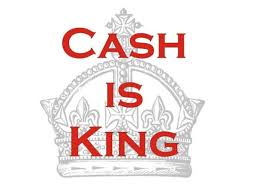 Here at CASE we have a tendency to overweight our focus on the unsustainable growth of debt levels seen over the last number of years. Who can blame us? We’re a debt collection agency. It’s our business, but the last thing we want to do is not pay attention to other facets of the economic story. In business, one must pay attention to all the tea leaves in order to best position oneself too not only survive, but prosper.
Here at CASE we have a tendency to overweight our focus on the unsustainable growth of debt levels seen over the last number of years. Who can blame us? We’re a debt collection agency. It’s our business, but the last thing we want to do is not pay attention to other facets of the economic story. In business, one must pay attention to all the tea leaves in order to best position oneself too not only survive, but prosper.
One of those tea leaves or economic phenomenon can be seen in the fact that despite Canada’s current economic malaise, Canadians still have plenty of cash and they’re simply just not willing to put it to work.
According to economists with CIBC, Canadians are sitting on an extra C$75 billion in cash above and beyond what they would be holding under normal circumstances. CIBC estimates that amount is equivalent to the total value of Canada’s overall personal liquid assets. In fact, this cash is piling up at the highest rate in four years, with idle money having risen 11% year over year.
However, Canadian consumers aren’t alone in this trend. The country’s private non-financial corporations reportedly had nearly C$700 billion in cash collecting on their balance sheets as recently as the first quarter of 2015.
The two most recent heads of the Bank of Canada have both bemoaned companies’ caution in this regard, with former central bank chief Mark Carney referring to the corporate cash hoard as “dead money,” while current Governor Stephen Poloz has lamented with the grand cliché that executives’ lack “animal spirits.”
As a side note the writer always gets a bit of a chuckle when he hears a member of the government elite such as a central banker with a guaranteed income, benefits, golden parachute and apparently a zero tolerance to personal risk (or else they wouldn’t likely be a bureaucrat in the first place) being critical or in some way or second guessing the actions or non-actions of those with real skin in the game; the entrepreneur, business manager, or investor.
Whether talking about consumers or corporations, apparently due to the uncertainty of economic conditions, feel compelled to continue to stockpile cash.
Economists and market watchers alike keep close tabs on these cash hoards because they’re a useful barometer of investor and business sentiment.
On the economic front, cash positions can reveal whether companies are investing for new growth or retrenching. That has important implications for monetary policy and, therefore, the overall economy.
Regardless, the thing that underpins everything is hope. Once hope and greater certainty returns, all that cash will naturally be deployed, kicking off the next turn in the business cycle.